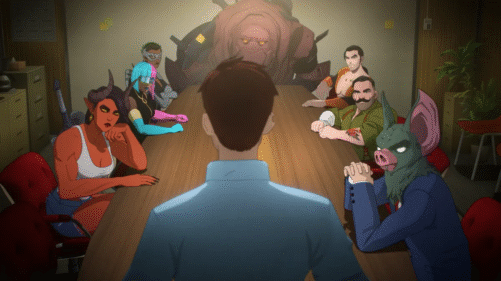I thought I loved “Resident Evil 4” as much as anyone possibly could. It was truly a formative game for me and remains the standout not just in the “Resident Evil” series but holds a place on many lists of the best games of all time. When it was first released in 2005, it transformed the “Resident Evil” series from a successful group of great survival horror games into something more intense, terrifying, and ultimately satisfying. Honestly, I feel like I’ve been chasing the thrill of playing “RE4” in so many action games since I played it for the first time. So it’s truly a statement when I tell you that the remake, released by Capcom last week, is even better.
After remaking “Resident Evil 2” in 2019 and “Resident Evil 3” in 2020—and releasing the excellent “Resident Evil: Village” in 2021—Capcom returned to “Resident Evil 4” with the same intentions as the other two remakes. Again, these are not “remasters,” which are just technical upgrades, like taking a Blu-ray transfer to a 4K one. They’re closer to remaking a film from the top down, keeping the key story elements but upgrading the visuals, gameplay mechanics, and sometimes even the enemy A.I. or characteristics. The previous remakes were accomplished updates but the games themselves still showed some of their age. In the case of “RE4,” perhaps because it was so ahead of its time to begin with and influenced so many games to follow, this feels like a game that could come out in 2023. One of the few things that date it is a linear structure—almost everything is open-world now—and a bit of repetition in the creature design. These are minor complaints for a release that took a game that I knew very well and made it new again. New and terrifying.

Once again, you play an agent named Leon Kennedy (Nick Apostolides) a few years after the traumatizing outbreak in Raccoon City. He’s been sent on a mission to Spain to rescue the President’s daughter Ashley Graham (Genevieve Buechner), who has been kidnapped by a cult influenced by a mind-controlling parasite. So, yeah, it’s a little like “Escape from New York” with zombies. Over 16 chapters, Leon explores a phenomenally designed setting that recalls European horror icons like Mario Bava and Lucio Fulci. There’s a sense of honest danger around every corner, which could hide a pitchfork-wielding villager or a Leatherface-inspired brute who swings a chainsaw like a bat. Leon has to fight his way to save Ashley and then stop a villain named Saddler (Christopher Jane) from taking over the world. Some of the dialogue remains the same, but a lot has been rewritten and revised, especially in the Ashley character, giving her more depth (and less sexual harassment from people around her). All of the characters are richer and more complex, even while maintaining some of the campy charm of the original dialogue.
By getting away from the villainous Umbrella Corporation that dominated earlier games and by taking Leon to a rich new setting, “Resident Evil 4” revealed the potential of the franchise, while also shifting it more from horror to action. If the first games were “Alien,” this was “Aliens”—bigger, faster, and louder. What’s most interesting about “RE4” in the context of the rest of the series is how it strikes the perfect balance of survival horror and intense combat. You will still have to hunt for ammo and other supplies, but there are far more explosive encounters than in the other games, which were often built around survival more than destruction. The push on the action throttle arguably derailed the next two games in the main franchise, which relied on it too heavily even if they were entertaining in their own way, before the series shifted back to more atmospheric horror in the seventh and eighth games.

“Resident Evil 4” also pioneered a new shooter mechanic that would forever alter the genre, placing players over the shoulder of the protagonist in a way that would become standard. It’s impossible to capture how groundbreaking that felt in 2005 if you weren’t there. However, that freedom was still pretty limited in 2005, which is not the case almost two decades later. Leon can now aim, move, and shoot at the same time! The enhanced movement, along with the much faster load times in and out of cut scenes gives the game a renewed intensity, something that’s enhanced further by the redesigned settings. “Resident Evil 4” was always pretty terrifying, but there’s a fluidity now that makes it even more of a nightmare fuel experience. There are sequences in this remake that have an urgency that video games too often lack as it appears the wave of enemies will too much for your dwindling firepower.
The variety of weapons—which can again be upgraded, bought, or sold through a merchant that keeps appearing in the game—allows for deep customization and authorship of gameplay. Everyone will find different weapons on which they rely, and a new resources system allows for crafting of ammo in a way that gives the action another thought process. (Do I want to craft ammo for my handgun or my shotgun?) There are also new side quests sprinkled through the game that can be exchanged for items via the merchant and a new shooting gallery mini-game portion that rewards the player with charms for the game’s legendary attaché case inventory system. As for combat, there’s even a new parrying mechanic, but none of the additions here take away from the successful core of the original release. It’s the rare remake that doesn’t add unnecessary bells and whistles, merely enhancements for what already worked. (And they even remove a few things that didn’t like quick time events and Ashley’s health management system.)
“Resident Evil 4” remains a turning point in video game history. Developers behind titles as influential as “Dead Space,” “Bioshock,” and “God of War” have cited its influence on games that would shape the industry in their own way. Capcom proves with this remake that the most phenomenal games can be given new life—even the ones about so much death.
Capcom provided a review copy of this title.












